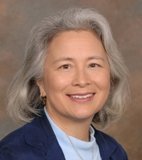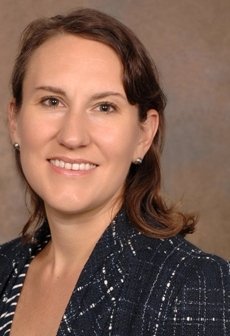Month: October 2013
Lindner Center of HOPE today was named Top Performer on Key Quality Measures® by The Joint Commission, the leading accreditor of health care organizations in America.
Mason, OH, October 31, 2013 – Lindner Center of HOPE today was named Top Performer on Key Quality Measures® by The Joint Commission, the leading accreditor of health care organizations in America. Lindner Center of HOPE was recognized by The Joint Commission for exemplary performance in using evidence-based clinical processes that are shown to improve care for certain conditions. The clinical processes focus on care for heart attack, pneumonia, surgery, children’s asthma, stroke and venous thromboembolism , as well as inpatient psychiatric services. New this year is a category for immunization for pneumonia and influenza.
Lindner Center of HOPE is one of 1,099 hospitals in the U.S. earning the distinction of Top Performer on Key Quality Measures for attaining and sustaining excellence in accountability measure performance. Lindner Center of HOPE was recognized for its achievement on the following measure sets: Hospital- Based Inpatient Psychiatric Services. The ratings are based on an aggregation of accountability measure data reported to The Joint Commission during the 2012 calendar year. The list of Top Performer organizations increased by 77 percent from last year and it represents 33 percent of all Joint Commission-accredited hospitals reporting accountability measure performance data for 2012.
Lindner Center of HOPE and each of the hospitals that were named as a Top Performer on Key Quality Measures must: 1) achieve cumulative performance of 95 percent or above across all reported accountability measures; 2) achieve performance of 95 percent or above on each and every reported accountability measure where there are at least 30 denominator cases; and 3) have at least one core measure set that has a composite rate of 95 percent or above, and within that measure set all applicable individual accountability measure have a performance rate of 95 percent or above. A 95 percent score means a hospital provided an evidence-based practice 95 times out of 100 opportunities. Each accountability measure represents an evidence-based practice.
“Lindner Center of HOPE and all the Top Performer hospitals have demonstrated an exceptional commitment to quality improvement and they should be proud of their achievement,” says Mark R. Chassin, M.D., FACP, M.P.P., M.P.H., president and chief executive officer, The Joint Commission. “We have much to celebrate this year. Nearly half of our accredited hospitals have attained or nearly attained the Top Performer distinctions. This truly shows that we are approaching a tipping point in the hospital quality performance that will directly contribute to better health outcomes for patients.”
“We understand that what matters most to patients at Lindner Center of HOPE is safe, effective mental health care. That’s why Lindner Center of HOPE has made a commitment to accreditation and to positive patient outcomes through evidence-based care processes. Lindner Center of HOPE is proud to receive this distinction of being a Joint Commission Top Performer on Key Quality Measures, says Dr. Paul Keck, President and CEO.
In addition to being included in The Joint Commission’s “Improving America’s Hospitals” annual report, Lindner Center of HOPE will be recognized on The Joint Commission’s Quality check website, www.qualitycheck.org. The Top Performer program will be featured in the December issues of The Joint Commission Perspectives and The Source.
Lindner Center of HOPE provides excellent, patient-centered, scientifically-advanced care for individuals suffering with mental illness. A state-of-the-science, mental health center and charter member of the National Network of Depression Centers, the Center provides psychiatric hospitalization and partial hospitalization for individuals age 12-years-old and older, outpatient services for all ages, diagnostic and short-term residential services for adults, intensive outpatient program for substance abuse and co-occurring disorders for adults and research. The Center is enhanced by its partnership with UC Health as its clinicians are ranked among the best providers locally, nationally and internationally. Together Lindner Center of HOPE and UC Health offer a true system of mental health care in the Greater Cincinnati area and across the country. The Center is also affiliated with the University of Cincinnati (UC) College of Medicine.
CONTACT:
Jennifer Pierson
Lindner Center of HOPE
(513) 536 -0316
[email protected]




 Nicole Marie Gibler, MD , has joined Lindner Center of HOPE as a staff psychiatrist.
Nicole Marie Gibler, MD , has joined Lindner Center of HOPE as a staff psychiatrist.
 Charles I. Shelton, DO , has joined Lindner Center of HOPE as a staff psychiatrist.
Charles I. Shelton, DO , has joined Lindner Center of HOPE as a staff psychiatrist. Suzanne H. Sumida, MD , has joined Lindner Center of HOPE as a staff psychiatrist. Dr. Sumida also serves as Adjunct Assistant Professor, Department of Psychiatry and Behavioral Neuroscience, University of Cincinnati.
Suzanne H. Sumida, MD , has joined Lindner Center of HOPE as a staff psychiatrist. Dr. Sumida also serves as Adjunct Assistant Professor, Department of Psychiatry and Behavioral Neuroscience, University of Cincinnati. Elizabeth Wassenaar, MD , has joined Lindner Center of HOPE as a staff psychiatrist.
Elizabeth Wassenaar, MD , has joined Lindner Center of HOPE as a staff psychiatrist. October 1, 1013, Mason, OH – National Alliance on Mental Illness (NAMI) Hamilton County recently announced the award winners to be highlighted at the NAMI Annual Celebration.
October 1, 1013, Mason, OH – National Alliance on Mental Illness (NAMI) Hamilton County recently announced the award winners to be highlighted at the NAMI Annual Celebration.